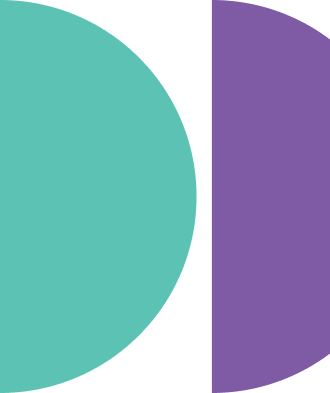Many financial institutions currently using the MemberDirecttm digital banking solution will be required to migrate soon. If you are one of the many Canadian credit unions that is considering migrating to the new Forge platform with Central 1, there are a few things to consider and plan for, including timing, resource allocation and risk management. As you embark on your migration, this is also a great time to re-evaluate your digital strategy and revisit both your content and brand in the digital context.
What to expect from Forge
Central 1, the leading partner for Canadian credit unions, recently announced that all credit unions must migrate from the MemberDirecttm product to the new Forge digital banking platform. Forge boasts a lean and innovative platform for digital banking, which is vital for financial institutions, whether you’re big or small, in an increasingly digital-first world.
The first thing to know is that Forge is built upon Backbase’s omnichannel platform. Backbase was recently named a leader in the Forrester Wave Digital Banking Q3 2019 Report (download the Forrester report here) for their outstanding platform abilities. As customers using Forge, this means that there are a vast degree of improvements to the backend system, as well as capabilities for retail brand differentiation, customization, and personalization via customer segmentation. The Forge Catalogue itself includes a number of feature sets from widgets, calculators, and containers that can be utilized and tailored.
As official partners of the platform and service, we’ve had years of international experience developing and building on Backbase. While it can be quite complex in understanding how to integrate and make the most out of the platform system, moving to and using Forge will be much easier if you know its capabilities and what to expect. A strong and experienced partner in the field can help you unlock the value in the global platform you will migrate to.
What you can do to get ready
Central 1 has planned waves for all of the credit unions required to migrate. Whether your credit union’s migration has already been scheduled for a wave or whether you are still deciding on your timing, there are ways your credit union can begin preparing for now. There are a laundry list of things you can do to get ready, but the most important thing is first understanding the risks and opportunities needed to successfully make the change to Forge, and then ensuring that you have a reliable, knowledgeable, and objective partner to support you in your endeavors.

aequilibrium offers services to help you get ready for your Forge migration. See the full list here.
Research from McKinsey shows that 70% of all transformations fail without the right strategy or plan. Knowing this, what measures would you take to be amongst the 30% who succeed? Based on our experience, here’s a list of stakeholders that we recommend your team includes:
- Project Manager and/or Project Coordinator to liaise with Central 1, your key FinTech partners, and your internal team to manage clear objectives and timelines.
- Content Manager, with a team of marketing strategists and editors to make the most from your content throughout the relationship lifecycle with your members.
- Communication & Marketing team to execute a strategy for both your internal team and external stakeholders during the transition to outline benefits and the overall impact.
- Digital team to craft your vision and plan for execution in the short and long term (aka, your digital roadmap). Forge is a platform with robust capabilities, but it does not replace the strategy behind calibrated value propositions and differentiation in an increasingly digital world.
- Enterprise Risk Management team to assess risks given the magnitude of change (i.e., security, legal, financial, vendor, member impact, compliance, regulatory risks) and to create pragmatic mitigation plans.
- Change Management team to have solid strategies and tactics to facilitate educational processes both internally and externally with members. They need to ensure key stakeholders and members understand the “why” and how it benefits them, and remove any barriers to adoption and use, as well as any friction.
- Quality Assurance team to test performance, speed, functionality, and usability on the plethora of devices that your members will use to access your services.
- UI/UX designers with an understanding of your credit union’s specific customer journeys. Deciding on the most effective ways to differentiate and get the most value out of the Forge platform will be one of the most important steps in getting ready. Brand is a core element in delivering a strong, consistent digital experience, and as such Designers are vital to your migration.
Regardless of the individuals who make up your team, all should be collectively responsible for auditing your existing content and populating new content, analyzing your site and revealing opportunities for brand improvements, conducting usability testing, flow, and analysis, and ensuring the best user experience.
A checklist for your migration
A good way to really see if you’re ready for the Forge migration or to see if you may need help making the switch is to go through a quick but thorough checklist of questions.
When it comes to your brand,
- Do you have a digital brand design system?
- What opportunities are there to improve on the public web site? Has a vision been created?
- How will your financial brand deliver differentiated value, digitally?
When it comes to your business,
- Do you have the right people? Your team should include digital marketers, content editors and content creators, customer experience specialists, business analysts, project managers, digital product owners, change management, security, regulatory, and risk specialists
- Have you identified key risks and mitigation plans?
- Have you conducted security reviews?
- Do you have a digital roadmap on Forge beyond the initial roll-out?
When it comes to your members,
- Have you drafted a customer communication plan?
- Do you have a customer support plan for handling post-migration issues?
- Is there a customer education plan or tools for the new digital UX?
- Have you mapped the member journeys from acquisition through to adoption, use, retention, and loyalty across your offerings?
Lastly, when it comes to your technology and FinTech partners,
- Is the Forge functionality for the initial launch clear to all internal key stakeholders?
- How does it compare to what you have today?
- If there are gaps, how and when will you fill those in?
- Have you identified FinTech ecosystem partners that need to be included in the readiness and testing plan?
There’s no time to waste
While this is not a complete list of how you can prepare for the Forge migration, this is a good indication of what you need to do to get ready. At aequilibrium, we provide a well-rounded skill set to help you succeed.





